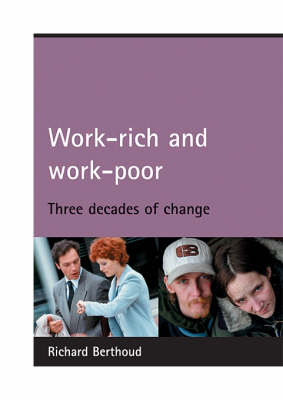The total number of people in employment is higher now than it was in the mid-1970s. But changes in the distribution of work leave many more families with no job and no earnings. Richard Berthoud has undertaken a detailed analysis of the trends over the past thirty years. About two million adults are in work today, who would probably not have had a job in the mid-1970s. They are mainly mothers, especially those with adequate qualifications, good health, and a working partner. On the other hand, there are another two million adults who would have had a job thirty years ago, but are now out of work. They are mainly disabled men, with poor educational qualifications, and no working partner. These two trends have combined to increase inequality between the work-rich (families with two jobs) and the work-poor (families with no job). The proportion of work-poor has doubled from 7 per cent to 14 per cent over 30 years. Most of them live on social security benefits, and have very low incomes. The government argues that 'work is the best route out of poverty'.
This report should be read by social policy makers and commentators concerned about the distribution of work between men and women, disabled and non-disabled people, and between families.
- ISBN10 1861349548
- ISBN13 9781861349545
- Publish Date 28 March 2007
- Publish Status Out of Print
- Out of Print 29 July 2009
- Publish Country GB
- Imprint Policy Press
- Format Paperback
- Pages 64
- Language English
